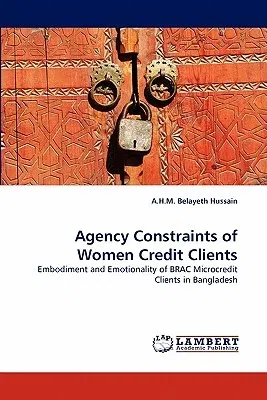A H M Belayeth Hussain
(Author)Agency Constraints of Women Credit ClientsPaperback, 13 December 2010

Qty
1
Turbo
Ships in 2 - 3 days
In Stock
Free Delivery
Cash on Delivery
15 Days
Free Returns
Secure Checkout
Print Length
72 pages
Language
English
Publisher
LAP Lambert Academic Publishing
Date Published
13 Dec 2010
ISBN-10
3843376352
ISBN-13
9783843376358
Description
Product Details
Author:
Book Format:
Paperback
Country of Origin:
US
Date Published:
13 December 2010
Dimensions:
22.86 x
15.24 x
0.43 cm
ISBN-10:
3843376352
ISBN-13:
9783843376358
Language:
English
Location:
Saarbrucken
Pages:
72
Publisher:
Weight:
117.93 gm

